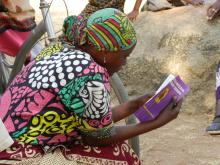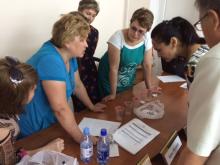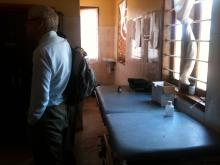Capacity building is central to the sustained development of any health system. The United Nations development programme (UNDP) suggests that “capacity development starts from the principle that people are best empowered to realize their full potential when the means of development are sustainable, home grown, long-term, generated and managed collectively by those who stand to benefit.”
CAGH is committed to ensuring the transfer of knowledge and expertise to those we work with. Along with improving knowledge and strengthening skills and abilities, one of the major aims of capacity building is to develop a common language and understanding. Working at all levels in the health system is important to build not only individual capacity, but institutional capacity, and produce sustained change.
CAGH recognizes that in most contexts’ there is an existent reservoir of experience and expertise. In all forms of learning, efforts are made to integrate examples of good practice and practical experience from both local and foreign health systems and experts into training activities. The four core methods used by CAGH for building capacity are: training, action-based learning, train-the-trainer, and mentoring.





